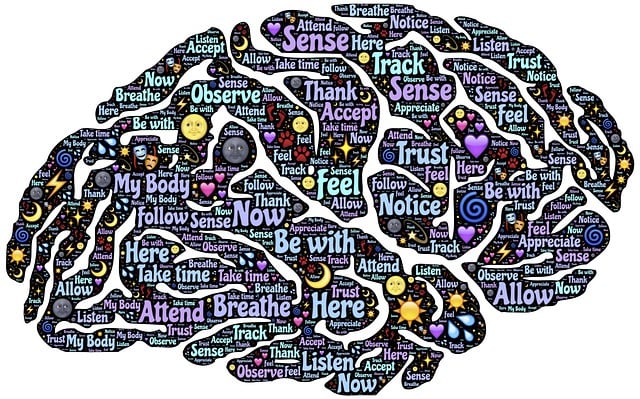The Recovery-Focused Methodology (RFM) offers a holistic approach to empowering adults with chronic illnesses, addressing both physical and mental health challenges. By focusing on individual resilience, strengths, and future goals, RFM helps individuals take control of their well-being. Through therapy tailored for adults with chronic illness, mindfulness practices, and social support, RFM enhances coping strategies, reduces stress, and improves quality of life. Open communication, professional guidance, and support groups are crucial components, fostering a sense of belonging and encouraging resilience in managing long-term health conditions, emphasizing Therapy for Adults Chronic Illness.
“Unraveling the power of RFM (Resilience, Flexibility, and Mastery) can be a game-changer in managing chronic illness. This article explores how RFM, a therapeutic approach, equips adults with emotional resilience to navigate the challenges posed by chronic conditions. We delve into the profound impact of chronic illnesses on mental health, offering insights into the emotional and psychological struggles faced. Through practical exercises and strategies, it uncovers effective methods for building resilience, providing a comprehensive guide for better mental well-being. Discover how integrating RFM into daily routines can enhance coping mechanisms and foster adaptability in the face of chronic illness.”
- Understanding RFM and its Relevance to Chronic Illness
- The Impact of Chronic Illness on Adults: Emotional and Psychological Challenges
- Resilience Building Exercises: A Comprehensive Approach
- Integrating RFM into Daily Life for Better Mental Health
- Support Systems and Professional Help for Effective RFM Practice
Understanding RFM and its Relevance to Chronic Illness

Understanding RFM, or Recovery-Focused Methodology, is essential when addressing the complex needs of adults living with chronic illness. This therapeutic approach shifts the focus from the illness itself to an individual’s capacity for recovery and resilience. By emphasizing strengths, resources, and future goals, RFM empowers individuals to take control of their well-being. It encourages a positive mindset, fostering hope and motivation, which are crucial aspects in managing long-term health conditions.
In the context of therapy for adults with chronic illness, RFM incorporates Mind Over Matter principles, highlighting the profound impact of mental wellness on overall health. The Mental Wellness Podcast Series Production often explores communication strategies that help individuals express their experiences and connect with support networks. This holistic approach ensures that both physical and psychological aspects of recovery are addressed, ultimately enhancing an individual’s ability to navigate life’s challenges.
The Impact of Chronic Illness on Adults: Emotional and Psychological Challenges

Chronic illnesses can significantly impact adults’ emotional and psychological well-being. The constant struggle with health issues often leads to a range of challenging emotions, including anxiety, depression, and frustration. Many adults find themselves grappling with the loss of control over their bodies and daily routines, which can negatively affect self-esteem and overall mental health. These experiences may result in increased stress levels and difficulty coping with everyday life.
Therapy for Adults Chronic Illness plays a crucial role in addressing these emotional and psychological challenges. Through therapy, individuals can develop effective coping skills to manage their symptoms and improve their quality of life. By fostering positive thinking and resilience building, therapy enables adults to navigate the complexities of chronic illness and enhance their ability to cope with uncertainty and stress. This supportive process empowers them to take control of their mental health journey and cultivate a sense of empowerment amidst adversity.
Resilience Building Exercises: A Comprehensive Approach

Resilience building exercises are a comprehensive approach to enhancing the mental health awareness and overall well-being of adults living with chronic illnesses. These tailored practices go beyond traditional therapy for adults chronic illness, focusing on cultivating inner strength and coping mechanisms that promote self-care. Through techniques such as mindfulness, compassion cultivation practices, and stress management strategies, individuals learn to navigate life’s challenges with greater ease.
By integrating these resilience exercises into daily routines, adults managing chronic conditions can develop a deeper sense of control and adaptability. This proactive approach not only helps in managing symptoms but also fosters a profound sense of self-compassion, enabling individuals to maintain a positive outlook even during difficult times. Mental health awareness is thereby heightened, empowering people to embrace a more fulfilling and resilient life.
Integrating RFM into Daily Life for Better Mental Health

Integrating RFM (Resilience, Flexibility, and Mastery) into daily life can significantly enhance mental health, particularly for adults living with chronic illnesses. These exercises are powerful tools that promote a sense of control and adaptability in the face of challenges, which is crucial for managing stress and anxiety. By incorporating practices like mindfulness, problem-solving, and social support networks, individuals build resilience that translates to better coping mechanisms and overall well-being.
For adults with chronic illnesses, who often face unique stressors, RFM offers tailored strategies for navigating physical and emotional demands. It encourages a proactive approach to self-care, fostering an environment where individuals can learn, grow, and adapt to their circumstances. This holistic method, supported by effective therapy for adults with chronic illness, aims to not only reduce stress but also enhance the person’s ability to cope and thrive in spite of challenges, thereby improving their mental health trajectory.
Support Systems and Professional Help for Effective RFM Practice

Having a strong support system is integral to effectively practicing RFM and building resilience. This includes open communication with family and friends about your chronic illness and its impact on your life, as well as seeking professional help when needed. Therapy for adults with chronic illnesses can provide valuable tools for self-awareness exercises, confidence boosting, and stress reduction methods. Professionals like psychologists or therapists are trained to help individuals navigate the challenges associated with chronic health conditions while fostering resilience.
Additionally, building a robust support network can facilitate your RFM journey. Support groups offer a safe space to share experiences, gain insights from others facing similar challenges, and discover new strategies for managing symptoms. These connections can enhance your sense of belonging and provide encouragement during times of difficulty, ultimately bolstering your resilience.
Resilience is a powerful tool for adults navigating chronic illness, enabling them to flourish despite challenges. By integrating RFM (Resilience, Flexibility, and Mastery) exercises into daily routines, individuals can enhance their mental health and overall well-being. This holistic approach, supported by strong social networks and professional guidance, ensures that therapy for adults with chronic illnesses becomes a transformative journey of personal growth and resilience.











